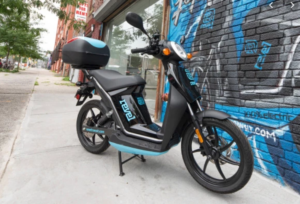Business & Money
During times of crisis, fairweather investors get shaken out if things for which they lack conviction. I try to think about this fact in both good times and bad. When I’m making a buy decision, I ask myself, “will I hold, or perhaps even add to the position, when times are bad?”
With clouds overhead, here are where my convictions remain unchanged.
The first is software. Software is permeating every corner of every industry in every geographic region. One can never be sure, but it seems likely this trend will continue. (holdings: CRM, CNSWF, SHOP)
The second is e-commerce. People will continue to buy more and more things online. Feels like another safe bet. (holdings: AMZN, BABA, SHOP, MELI)
Third is gold. One of the most constant and predictable financial realities is the continued inflationary policy of the Fed. Fiat currencies, since the dawn of time, have suffered from continuous debasement. Thus, in a world of paper money and infinite QE, gold feels like a necessary component of a sound portfolio. (GLD, BTC)
Finally, is an investment in oneself. This takes countless forms, but for me it means reading books, interacting with people smarter than me, and exploring avenues to grow our company.
And on that last point, I can think of 2 factors that make it, far and away, the most important investment of all.
First, the measuring stick is internal (hopefully). You’re putting in work to be a better version of yourself.
Second, there’s no cost of entry. Whatever your station in life, you have the ability to invest in yourself, at least to some degree.
(I don’t have a clean categorization for 2 of my largest individual positions, both of which I’ve been adding to. Those are BRK.B and MKL. These are anchor positions due to impeccable leaders, impeccable discipline, impeccable track records, and bulletproof balance sheets.)
Human Progress
Some say people don’t change, while others say they do. I tend to lean towards the latter camp, but one thing is for sure. Human nature doesn’t change.
One aspect of that has to do with emotion. We’re emotional creatures through and through. You can see it in yourself, you can see it in other people, you can see it in Washington, and you can see it on Wall Street.
So, knowing that we cannot change our nature, the fruitful course of action, from where I sit, is to get to work understanding those emotions.
One way to do that is by cultivating a mindfulness practice. One technique that has been particularly helpful for me has to do with noticing how emotions physically manifest in experience.
Take anger for example. I usually feel a tightness in my forehead as my brow furrows. My breath shortens and I begin speaking at an increasing rate. This, of course, leads to an increase in heart rate which no doubt kicks off a whole new series of physiological responses.
But when I pay attention to the physical phenomena as they occur, I can more quickly recognize them for what they are, and subsequently remind myself to resume normal breathing and relax the muscles in my forehead. Once I do that, I’m in a much better position to have a calm conversation. The angry moment ends after a few seconds rather than turning into something that has the chance to ruin an afternoon.
Philosophy
Related to understanding our emotions is understanding motivation. You might even say that emotion and motivation are one and the same.
An executive coach once suggested that I work hard because I fear failure, because I fear not being good enough. We’ll save the psychoanalysis for another day, but she drew a straight line from emotion to motivation.
I point this out because I think the present moment affords a unique opportunity. Many find themselves with more time on their hands than normal. Perhaps work has slowed down. No commutes. No sports. Less social commitments.
So what to do with the extra time?
Spending some dedicated to thinking about my emotional state and motivations always proves beneficial for me.
Blake Crouch captured the sentiment well in a question he posed in Dark Matter, an incredible novel I just wrapped up with the gentlemen of Excelsior.
“How do you feel about your place in the world?… Are you happy in your life?”
So I’ll ask you.
Are you mindful of how you spend your time? And with whom? And on what you spend your financial and emotional capital?
My Latest Discovery
Whatever your answer, it’s important we spend time being mindful, not only of our own place in the world, but of the people around us. A friend recently pointed out something profound.
This is the first time in our lives, and perhaps the last, when we will be impacted by something that equally impacts every other person on the planet.
Rich or poor, black or white, young or old, the current moment touches everyone. If that’s not a call for solidarity, I don’t know what is.
In times like these, each one of us must find ways to take decisive action and contribute to something outside of ourselves.
For me that means making our software free for small businesses indefinitely.
It means sending groceries to family members. And telling the TaskRabbit delivery person that I ‘ll cover her groceries as well if she just adds them to my total.
It means continuing to pay our cleaning lady and telling her to stay home and stay safe.
It means backing a couple of GoFundMe campaigns, one towards getting more PPE to our medical professionals and one toward The Yoga Room, a local yoga studio that Hana has frequented here in Long Island City.
Whether you have $500K, $500, $5, or 50 minutes of time, figure out a way to be helpful.








